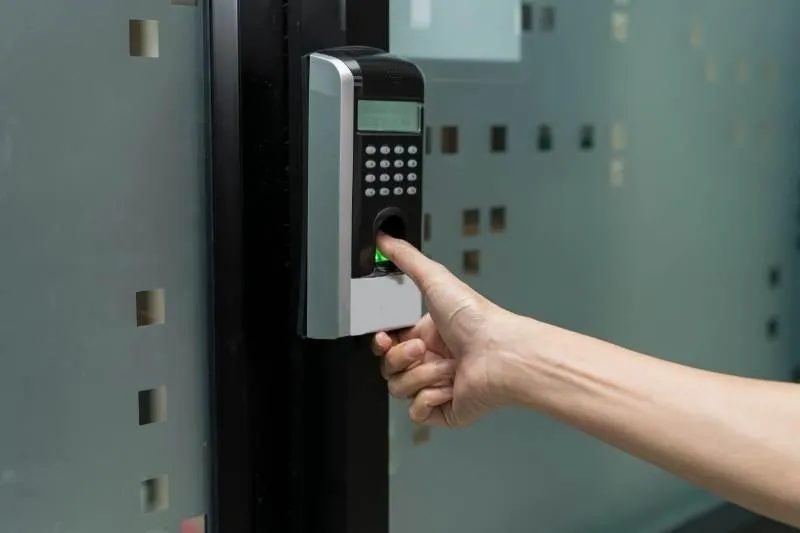
Automatic Gate Maintenance in Houston and Surrounding Areas
Serving Houston and surrounding areas throughout the Greater Houston region
Keeping your automatic gate in top shape is essential for maintaining property security, convenience, and peace of mind. In Houston and its surrounding areas, the extreme weather — especially intense heat and high humidity — can take a significant toll on gate components over time. Whether you’re a homeowner or manage a commercial property, this guide answers the most frequently asked questions about automatic gate upkeep in the Greater Houston area and surrounding communities.
Why Is Automatic Gate Maintenance Important in the Houston Area?
In the Greater Houston region, automatic gates are especially vulnerable to the area's intense heat and high humidity. These environmental factors cause gates to wear down faster than in drier climates. Routine maintenance plays a vital role in preventing rust and corrosion, reducing mechanical failures, and protecting sensitive electrical components from moisture. In areas like Pearland, Spring, and League City, consistent upkeep can extend the life of your gate by up to 10 years. Property owners who stay proactive avoid costly emergency repairs and reduce unexpected downtime.
How Does Houston’s Climate Affect Gate Components?
Houston’s climate brings a unique mix of challenges. Humidity speeds up rusting on metal components such as hinges and rollers, which can make your gate harder to move over time. The extreme summer heat wears down rubber seals and causes insulation on wires to degrade faster. In addition, frequent rain and occasional flooding can damage internal electrical components, especially control boards and battery backups. Whether you're near the coast in League City or further inland in Katy or Tomball, adjusting your maintenance schedule to account for these local conditions is essential for long-term performance.
What Are the Most Common Gate Problems in Houston's Weather?
Gates in Houston and nearby towns like Fulshear and Cinco Ranch often experience specific problems due to the local weather. Rust tends to develop on hinges and rollers, leading to stiffness and difficulty in movement. Tracks can become sticky or obstructed by dirt and rust buildup, especially after storms. Electrical issues are common when moisture seeps into control boxes, causing short circuits. Sensors may go out of alignment due to temperature fluctuations, and backup batteries often degrade faster under extreme heat. Addressing these issues early can help avoid more significant system failures.
How Often Should You Service Your Automatic Gate in Houston?
The frequency of gate maintenance depends on the location and how heavily the gate is used. For most residential gates in Houston, a yearly inspection and tune-up is usually sufficient. In high-traffic residential areas such as Sugar Land or Missouri City, gates should be serviced at least twice a year to ensure safety and reliability. Commercial properties, like those in Spring or The Woodlands, often require quarterly or even monthly maintenance due to their constant usage and stricter safety requirements.
Which Parts of the Gate Need Regular Maintenance?
Automatic gate systems consist of several interconnected components that all require attention. Hinges and rollers are responsible for allowing smooth gate movement and should be checked and lubricated every six months. Tracks, which guide the gate, need to be cleaned quarterly to avoid buildup. The gate opener motor powers the system and benefits from bi-annual lubrication. Safety sensors should be tested every three months to ensure they’re aligned and functioning properly. The control panel, which houses the system’s electronics, should be inspected at least once a year. Lastly, battery backups, which keep the gate running during power outages, usually need replacement every two to four years.
What Can Homeowners in Houston Do Themselves?
Homeowners can take care of basic maintenance tasks to keep their gates running well between professional visits. Visual inspections should include checking for dirt buildup, rust, moisture, and loose hardware. Cleaning tracks and rollers with a brush and wiping down sensors and control panels helps avoid performance issues. Gently moving the gate along its track can help you spot alignment problems early. For lubrication, use a silicone-based spray on hinges and rollers to reduce friction without attracting dust. Chain drive systems should be lubricated with a chain-specific product that withstands Houston’s heat and humidity. Avoid using oil-based greases, as these can trap dirt and cause wear over time.
How Should You Maintain Electrical and Safety Systems?
Electrical maintenance starts with turning off the power to the gate system before inspecting any components. Once it's safe, examine wiring for cracks, corrosion, or loose connections. Testing battery voltage with a multimeter helps determine whether your backup power system is functioning correctly. Batteries that are swollen, leaking, or older than four years should be replaced.
For safety systems, begin by blocking the photo eyes to check that the gate reverses automatically, which indicates proper function. Use a vehicle to test the loop detector, which should prevent the gate from closing prematurely. Placing an object in the gate’s path should activate the auto-reverse feature. It’s also a good idea to test the manual release to ensure it will operate during a power failure.
When Should You Call a Professional Gate Technician in Houston?
There are several warning signs that signal the need for professional help. If you hear grinding or humming noises from the motor, or if the gate drags, misaligns, or moves unevenly, it’s time to schedule a technician visit. Intermittent operation, inconsistent sensor performance, or visible damage to posts and control boards also require expert attention.
AAG Solutions LLC offers professional maintenance plans that include regular inspections, pre-emptive part replacement, and credits for emergency service calls. Whether you’re a homeowner in Cypress or managing a commercial gate in The Woodlands, a professional plan adds reliability and peace of mind.
What Maintenance Plans Are Available for Houston Properties?
There are three main types of automatic gate maintenance plans, each tailored to different property types and usage levels. An annual plan is ideal for low-traffic residential gates, offering a basic tune-up with lubrication, visual checks, and safety testing once per year. For homes in active neighborhoods like Katy or Sugar Land, a bi-annual plan includes mechanical adjustments, sensor calibration, and battery testing every six months. Commercial properties or gated communities in high-traffic areas such as Spring or The Woodlands benefit most from a quarterly plan, which provides full-service maintenance, minor parts replacement, and detailed service logs every three months.
How Is Gate Maintenance Different for Homes vs. Businesses?
Residential gate systems focus on convenience, safety, and appearance. Homeowners generally require a quiet, smooth-operating gate that looks good from the street and includes functioning safety sensors. Routine tasks like trimming landscaping around the gate, cleaning debris from tracks, and replacing batteries every few years are usually sufficient.
Business and commercial gate systems, on the other hand, are built for high-frequency use and require a more aggressive maintenance schedule. These systems often involve complex access control software, loop detectors, and ADA-compliant safety features. Maintenance includes frequent calibration of sensors, motor performance testing, and reviewing system logs. In cities like League City or Missouri City, compliance with local HOA or commercial safety regulations adds another layer of responsibility for commercial gate owners.
Final Thoughts
Keeping your automatic gate well-maintained is essential for safety, reliability, and long-term performance—especially in Houston and surrounding areas where heat, humidity, and seasonal storms can wear down components quickly. Regular upkeep, whether handled by homeowners or trusted professionals, helps prevent unexpected breakdowns, extends the lifespan of your gate, and ensures smooth operation year-round. Investing in proactive care today saves time, money, and stress tomorrow.

Frequently Asked Questions
How often should I service my automatic gate in Houston?
In most residential cases, servicing your gate once a year is sufficient. However, in high-traffic areas or commercial properties, service should be performed every three to six months due to heavier use and exposure to harsh weather conditions.
What are the signs that my gate needs maintenance or repair?
Common warning signs include unusual noises, slow or jerky movement, the gate not opening or closing fully, sensor malfunctions, or visible rust and wear on components like hinges, rollers, or control panels.
Can I perform maintenance on my gate myself?
Yes, homeowners can safely handle basic tasks like cleaning tracks, lubricating hinges, and checking for rust. However, electrical checks, motor diagnostics, and sensor calibration should be left to professionals to avoid injury or voiding warranties.
What kind of lubricant should I use on my gate?
Use a high-quality silicone spray for hinges and rollers, and a weather-resistant chain lubricant for moving mechanical parts. Avoid oil-based or petroleum-based products, as they attract dust and can damage rubber seals.
Are maintenance plans worth it for residential gates?
Yes. A maintenance plan provides peace of mind by ensuring your gate is regularly inspected, adjusted, and kept in good working order—helping to prevent emergency repairs, improve security, and extend the lifespan of the entire system.

Contact Us
Terms & Conditions
Privacy Policy
Email: [email protected]
Phone: (346) 507-6303
Address: 4722 Magnolia Creek Road, Houston, TX 77084